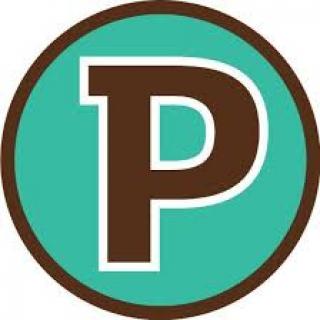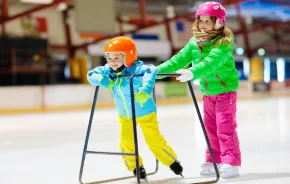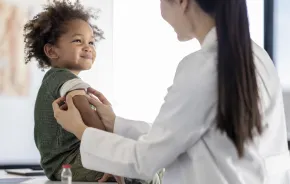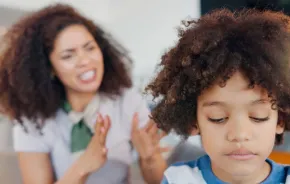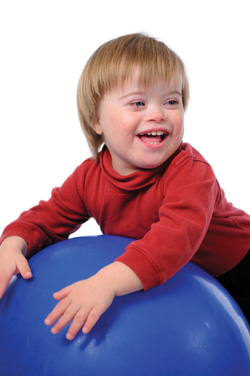 Three-year-old Harper Matsumoto found a good friend in her new preschool. She discovered that she and her friend both liked the color pink, they both liked to swing and they both liked baby dolls. Their differences, such as the fact that her new friend was disabled and couldn’t walk or talk, didn’t seem to matter at all.
Three-year-old Harper Matsumoto found a good friend in her new preschool. She discovered that she and her friend both liked the color pink, they both liked to swing and they both liked baby dolls. Their differences, such as the fact that her new friend was disabled and couldn’t walk or talk, didn’t seem to matter at all.
Welcome to the world of the University of Washington’s (UW) Experimental Education Unit (EEU), where teachers, families and kids of all abilities come to work and play. For more than 40 years, the EEU has led the way in early childhood education. Children with disabilities learn and play with typically developing children in the EEU’s infant and toddler program, preschool and kindergarten.
Last year, the UW established the Norris and Dorothy Haring Center for Applied Research and Training in Education, which houses three programs: the EEU; the Applied Research Unit, which focuses on research; and the Professional Development Unit, which trains graduate students in special ed.
Harper’s dad, Chris Matsumoto, who also happens to be the EEU’s principal, was delighted by his daughter’s new friend, but he wasn’t surprised. “I didn’t even have to go with the lesson on similarities and differences. She went there herself,” he said.
Parents can be certain that their children will be the beneficiaries of individualized therapies and educational interventions at the EEU, Matsumoto says. Classroom teams include speech and language pathologists, occupational or physical therapists, social workers and nurses.
Yet, this place seems to be much more than the sum of its parts. Parents and staff say it feels like family here.
Thy Huynh, whose typically developing children have attended school here, remembers the day she went for a tour. “I fell in love with the principal, fell in love with the school and I have been in love with it ever since,” she says. “It’s a real community. Everyone is accepted. It’s truly a diverse place in every sense of the word.”
The principal Thy [last name in Asian tradition] fell in love with was Jennifer Annable, who spent 25 years at the EEU and retired this year as director. When people talk about the EEU as family, they often mention Annable.
“Whatever happens here, it’s a place where you’re accepted, you’re welcome, and your kids are accepted and welcomed. It’s about what we can do to help your child succeed, to help you see your child as a child first, rather than focus on his special needs,” says Annable.
Matsumoto intends to keep nurturing that feeling. “One thing I learned from Jennifer is the importance of the morning greeting in the hallway,” he says. “I think that feeling of family is created by each person, every day they walk into the building. This is a place where everyone wants to be.”
Tough transition
Yet for some parents, the journey into the family can be difficult.
“I definitely didn’t want to be there. I didn’t want to be in that world,” recalls Seattle mom Tracy Brown, whose 6-year-old son Maxford was diagnosed with Down syndrome shortly after his birth.
“The first day I got there, I just cried. The teacher didn’t try to tell me everything would be all right. She just laid a quiet hand on my shoulder and let me process.”
It took months. Along the way, Brown was asked whether she would like her daughter Grace, a typically developing child, to attend classes there. She said no — twice. “I think I was in denial. Now I’m hitting myself in the head because it’s the greatest preschool in the world.”
Mercer Island mom Nancy Gordon says her son Josh was a typically developing child until things began to change at the age of 18 months. The diagnosis of autism spectrum disorder left her dazed. “When you get the diagnosis, it feels like you got hit by a 2-by-4,” she recalls.
Moving forward allows a parent to take on another important role as an advocate for her child, Gordon says. “Some parents are adversarial, some are weepy, some are proactive, some are clueless. We all want the same thing for our kids — to be successful, to be happy, to have friends.”
Finding support from other parents and staff at the EEU made the difference, she says. “It saved us.”
Fostering compassion
Each class at the EEU maintains nearly a 50-50 relationship between typically developing children and those with developmental disabilities. Annable recalls that, in the early days, parents worried that their typically developing children would not be challenged academically or would pick up disruptive behaviors from other children. Today those same parents would encounter a sizable waiting list for typically developing children to get into the EEU.
Thy recalls that she was hesitant to enroll her typically developing daughter in the school, but Alexa, now 16, considers it one of the best experiences of her life. “She is a very compassionate and empathetic child,” Thy says. “When you’ve taught these kids to be compassionate, to be tolerant, to be accepting when they’re very young, it can last a lifetime.”
Annable says her great joy was watching children, parents and staff flourish and progress at the EEU. “I watched a person I hired for $5.50 an hour become one of the best researchers in the field,” she recalls.
The EEU has fostered such loyalty among families with children that they often dread facing the challenges of the “real” world. But the support of staff and other parents follows them wherever they go. Matsumoto is reminded of a severely disabled girl who is graduating from kindergarten this year. He met her dad the day after she was born.
“It’s been a journey,” he said. “That family became part of our family. They come to know that things are not necessarily going to be OK, there may be tough times ahead, but they’re not alone.”
Students graduate, parents look for new schools for them, and staff leaves for other opportunities, but Matsumoto says they share one simple truth about this place. “You never really leave the EEU.”
Freelance writer Elaine Bowers lives in Seattle with her husband and twin teenage daughters.




